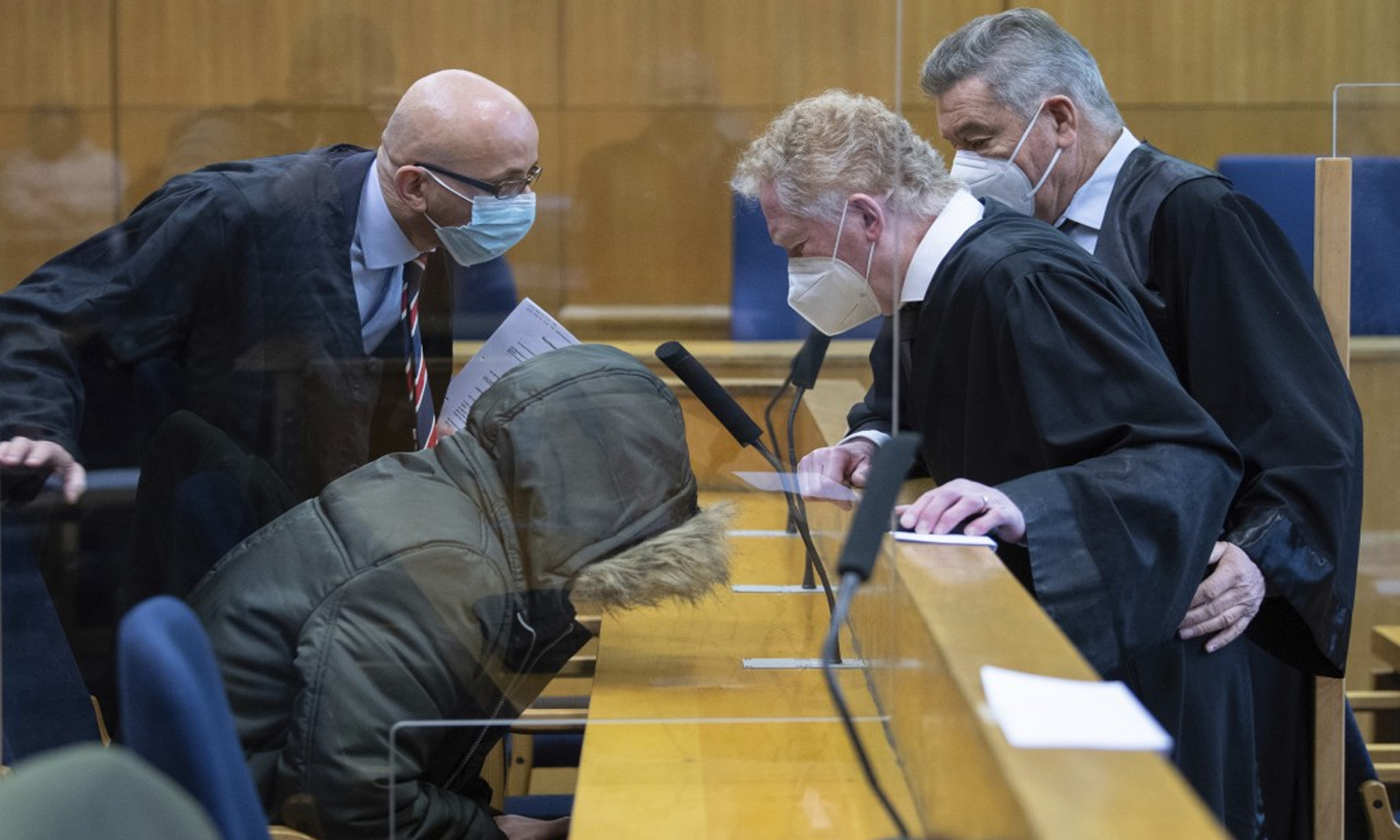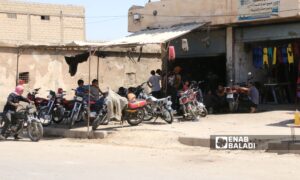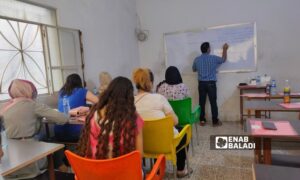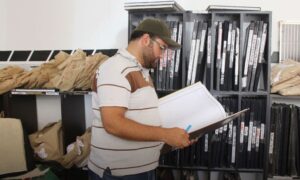
Press and Frankfurt trial: between reporting and protecting the justice course

Enab Baladi – Saleh Malas
The Supreme Court of the central German city of Frankfurt requested the removal of media and human rights reports on the trial of the Syrian doctor, Alaa Mousa, and the non-publication of witness statements during the past week due to the presiding judge’s concern about the negative impact of these reports on the trial’s course.
The court’s move refers to raising one of the important questions about the extent to which the Syrian press possesses tools that enable it to cover EU trials of human rights violations in Syria, which are expected to double in size in the future.
The danger of the court’s request lies mainly in the judge’s warning to journalists that he will assess the source of the witnesses’ knowledge of the facts of the case and may summon those who exchange detailed information about the trial.
While the news coverage related to the European trials is almost completely absent within the Syrian government and private media and press institutions loyal to the authority, the “alternative” Syrian press portrays itself as promoting a culture of human rights among Syrians.
The image of human rights in Syria remains incomplete, and it is difficult to draw its features without knowing how these media and press outlets know how to inform their readers about what is happening in the trials, as one of their rights to understand the course of their justice, without exaggerating its effects or robbing its achieved value.
Freedom of publication or integrity of the trial?
While violations of freedom of expression, publication, and access to information are directly dealt with within the framework of legal and awareness systems and development programs, it is difficult when freedom of publication can turn into an obstacle to the integrity of important trials, as in the trial of Dr. Alaa Mousa, as the Syrian human rights community falls into the controversy of two cases of the human rights issues, and it may be that there is no priority in one case over another.
The first is freedom of expression and publication and the right of individuals to access information of interest to their victims in such trials, enshrined in the International Bill of Human Rights.
The second relates to the judges’ right to protect their case in which they are considering from giving the media information with the aim of influencing the case or improving the situation of one of the parties to the case by publishing information about it and influencing the extent of the penalty in the final ruling.
Journalists have the right to access and search for information. In return, judges have the right to keep their case files away from all media pressures that provoke public opinion towards opposing one of the parties to the case.
Legitimate concerns
The publicity that is produced by the press and other media is only a supplement and an extension of the limited publicity that takes the form of people attending the hearing since publishing the details of the trial procedures has enabled anyone whose circumstances do not allow him/her to attend the hearing to understand and follow what is happening in it.
“Syrians cannot attend the sessions, and the attendance is only a few people, so restricting publication is a calamity because it means concealing the accused’s crime and the facts of his crime from the Syrian public opinion,” the director of the Syria Justice and Accountability Center (SJAC) told Enab Baladi.
Mohammad al-Abdullah says it is not permissible to limit the press’s publication of court proceedings unless there is an underlying goal of publishing that would involve the trial in the circle of what is published in the media, and the requirement of professionalism belongs to the publisher, so he may not invoke his right to publish, while he has bad intention, because good intention is a general condition for the use of rights.
In the Syrian case, the media is the most important source of information on human rights for most people in two methods, the first through its political and moral role in raising a specific issue, in the absence of transparency in government reports.
The second method lies in the role of the media as a carrier of information adopted by human rights organizations.
It is considered the most important and most effective bridge between these organizations and public opinion, whether in covering specific topics or launching campaigns on specific topics and files related to the European courts.
Conveying the news only
In an interview with Enab Baladi, the Syrian lawyer and human rights activist Al-Mutassim al-Kilani said the majority of the Syrian press is governed by the funding authority with regard to content. While the role of monitoring the integrity of trials, publishing their details, and evaluating them without affecting their procedures or the final ruling, should be shared by human rights organizations and press institutions.
Al-Kilani explains his view that human rights organizations are involved in supporting victims or witnesses and are interested in monitoring the conduct and fairness of the trials that are taking place, and therefore the news of the trials must be reported “in a literal, investigative, and accurate form of information” by the reports of human rights organizations, “to prevent any fallacies that may hinder the course of the trials,” or the image may be inaccurately communicated to the victims’ community.”
The communicative role of the Syrian press regarding European trials needs to investigate information, test it, and study how to deal with it before deciding to publish it. These matters need to be developed further.
Al-Kilani says, “As Syrians in particular, we must benefit from the experiences of international human rights and journalistic institutions in investigating them and their work in investigative reporting, to benefit from them to the fullest extent in developing institutional human rights work in addition to investigative journalism.”
Also, writing about human rights, or making media reports on issues related to trials, is one of the jobs of the Syrian press at the present time, according to al-Kilani.
This is done by getting close to people and their pain and conveying integrated stories in which the parties to the armed conflict show a lack of commitment to national and international laws and commitments, which means the necessity of a wide human rights culture among Syrian journalists, to know how to do this professionally.
The development of Syrian human rights work, which is directed towards holding individuals or entities involved in violating human rights accountable, must be matched by the priority of Syrian media institutions to pay attention to human rights concepts through the systematic establishment of training programs and workshops to implement this on the ground.
if you think the article contain wrong information or you have additional details Send Correction
النسخة العربية من المقال
-
Follow us :
Most viewed
- Potential Erdoğan-Assad meeting in Moscow: Talks of excluding Iran
- European countries call for re-evaluation of policy towards Syria
- After Turkey and the opposition, SDF shows willingness to dialogue with Syrian regime
- Al-Assad reproduces Constitutional Committee through People's Assembly
- After al-Hasakah, AANES releases prisoners in Raqqa

















 A
A
A
A
A
A








 More Society
More Society